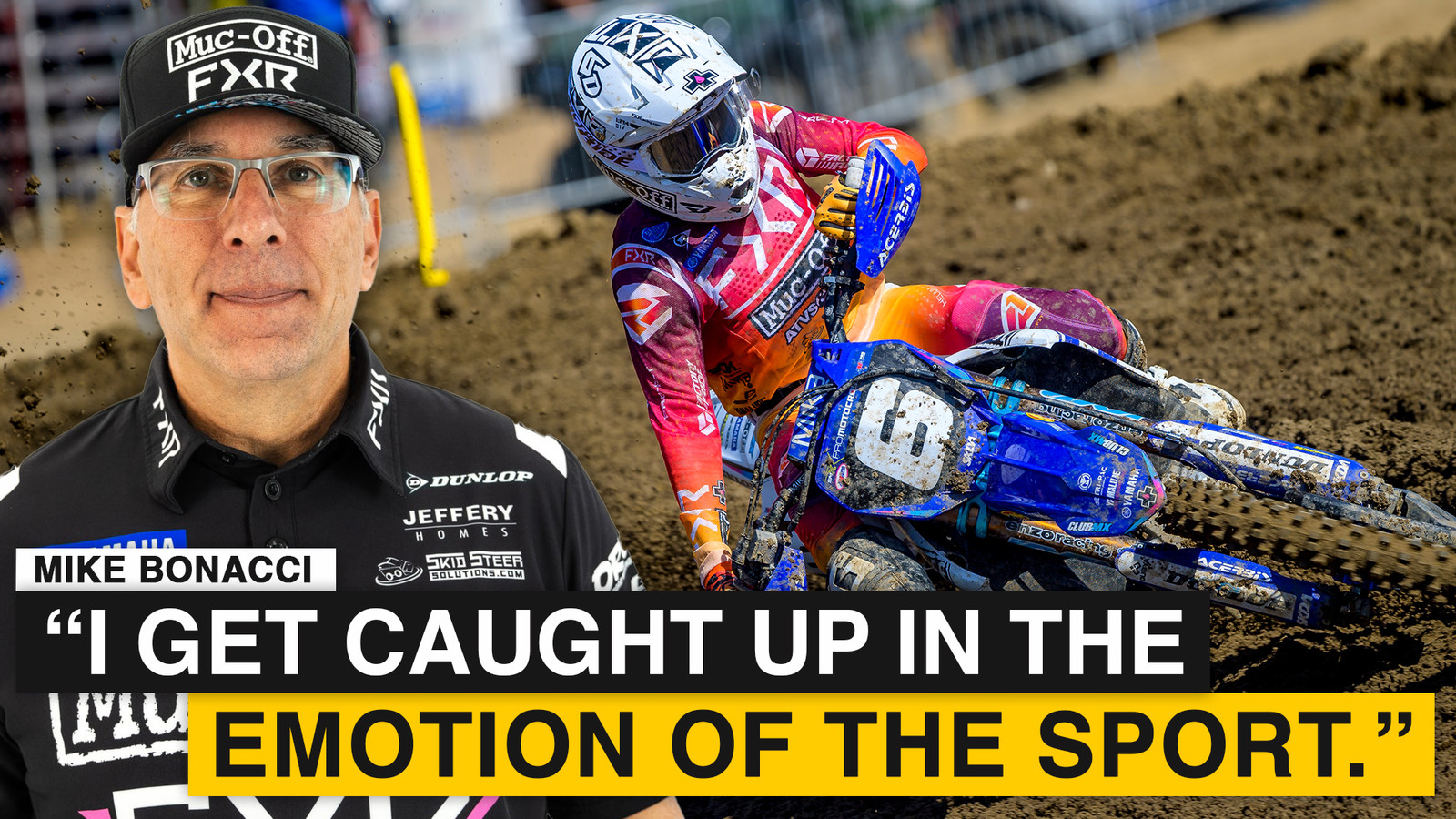The team manager role for teams is typically filled by ex-racers or someone who has been in the industry for many years and knows the in's and out's of the sport. Mike Bonacci became the team manager of the Muc-Off/FXR/ClubMX Yamaha team through a different route. His marketing background and outside the industry view was appealing to team owner, Brandon Haas. Mike is upfront and open in his press releases and pre-race reports and wants to let us see behind the curtain of the team. I called Mike up recently to ask how he got the role and talk about how things are going.
For the full interview, check out the Vital MX podcast right here. If you're interested in the condensed written version, scroll down just a bit further.
Jamie Guida – Vital MX: Your road into this industry and team manager role is a bit unique. As I recall, you had 30-plus years of marketing in the automotive industry. You came from outside the moto industry.
Mike Bonacci: Originally, I did. I worked in the auto parts industry for 35 years with the same company, which is unheard of these days. It was a family-owned company that wanted my help to grow, and we became the country's ninth-largest auto parts distributor during my tenure there. So, I'm pretty pumped about it. When Covid hit, I ended up retiring near the end of 2020. It was time to go.
Vital MX: You did have an amateur team before working for ClubMX, correct?
Mike: I had my own amateur team from 2012 to 2020, where I was helping local kids do local stuff. I was oblivious, but I didn't know what I know today. I would save my travel points and take the kids to ClubMX for a week or two, depending on how many travel points I earned. This was to do some riding and get out of the cold and the snow of New York, go down to South Carolina and enjoy ourselves down there. I got to know Ben (Graves) and Brandon (Haas) at that point, and when I decided to retire, I reached out to them and asked if they wanted someone to help with their facilities, and one thing led to another, and here I am, at Club full time.
Vital MX: Wasn't your original role in helping out with the practice facility? Although, that role has grown since then.
Mike: It was. I came down the day after Christmas of 2020 and worked with the public that was going to ride the practice facility. They have two really nice practice tracks and a 50cc track. I was navigating hiring the employees, the flaggers, the track maintenance, and all those things, which was new to me because it was manual labor. I wasn't entirely used to manual labor, but it worked well, and we grew the practice facility. Attendance doubled the first year, and they kind of caught on to maybe I knew a little more than I was leading on to in my newly found retirement years. So, I started helping with their amateur team and, from there, started helping with the pro team. One thing led to another, and it's been a blast.
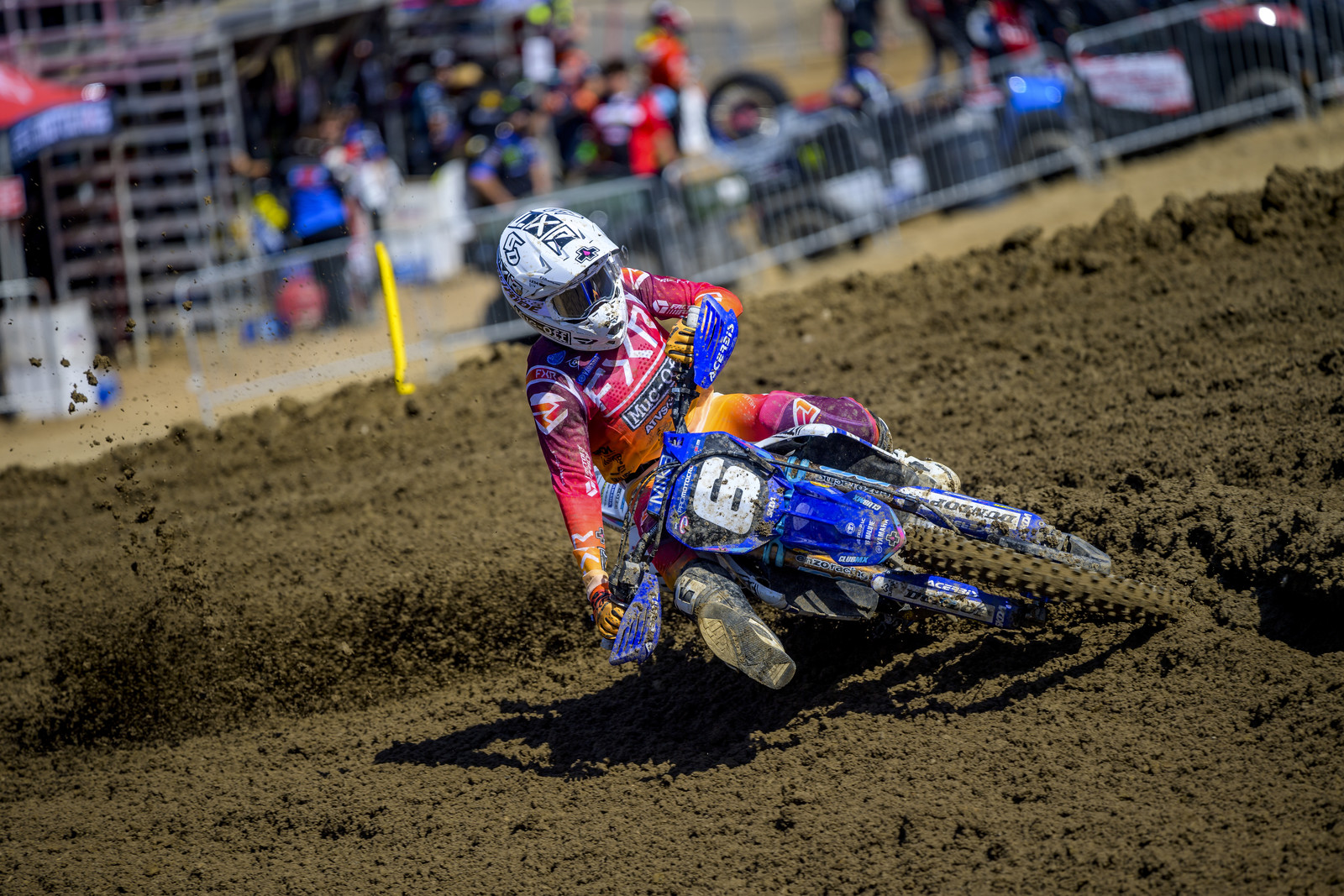
Vital MX: How did you double the attendance that quickly?
Mike: I worked specifically with all the local dealers. There are a lot of local dealers, and when they would sell a new bike or have people come through their doors for the parts department, we would have things to hand out to let them know where we were. We upped our social media presence tremendously and made our hours of operation more regular because, before, they would have the track open at their convenience. I had it on a schedule, and then we also updated the website so people could see the schedule online. Everything was automated, and people knew we were open. That was the biggest obstacle I had run into. People never knew what day they were going to be open. So just normal, easy stuff, really. Then people would come to Club, and they're like, "Holy crap, this is nice." They would come back for more after that and tell their friends. So, word of mouth and a lot of electronic stuff on the front side carried it through.
Vital MX: Once you start getting more involved with the amateur and pro side, you think differently than most team managers in our sport because you come from outside of it. What were your first roles with the teams? What were you bringing to the table?
Mike: Well, the amateur team, they didn't have one. Organizing the first amateur team was the first step on that side. It was picking from riders that were here full-time. The people you could pick from were limited because they had to be training here full-time. What I did is once we had picked our team, we just leveraged our current sponsors and partners on the pro side and extended them discounts, products, or whatever we could and started to build some momentum. As the pro team did better, the level of riders that came to train here also got better. I think there's no coincidence there. The amateur team this year is really solid. This is our third year going to Loretta's with me, and I think we stand a chance at some championships. I'm pretty excited about that. I've got some really good kids on the roster on the amateur side, and they look like the pro team. FXR and Muc-Off have helped us tremendously with the amateur side. Yamaha is over the top and generous with us in the things that they do for us.
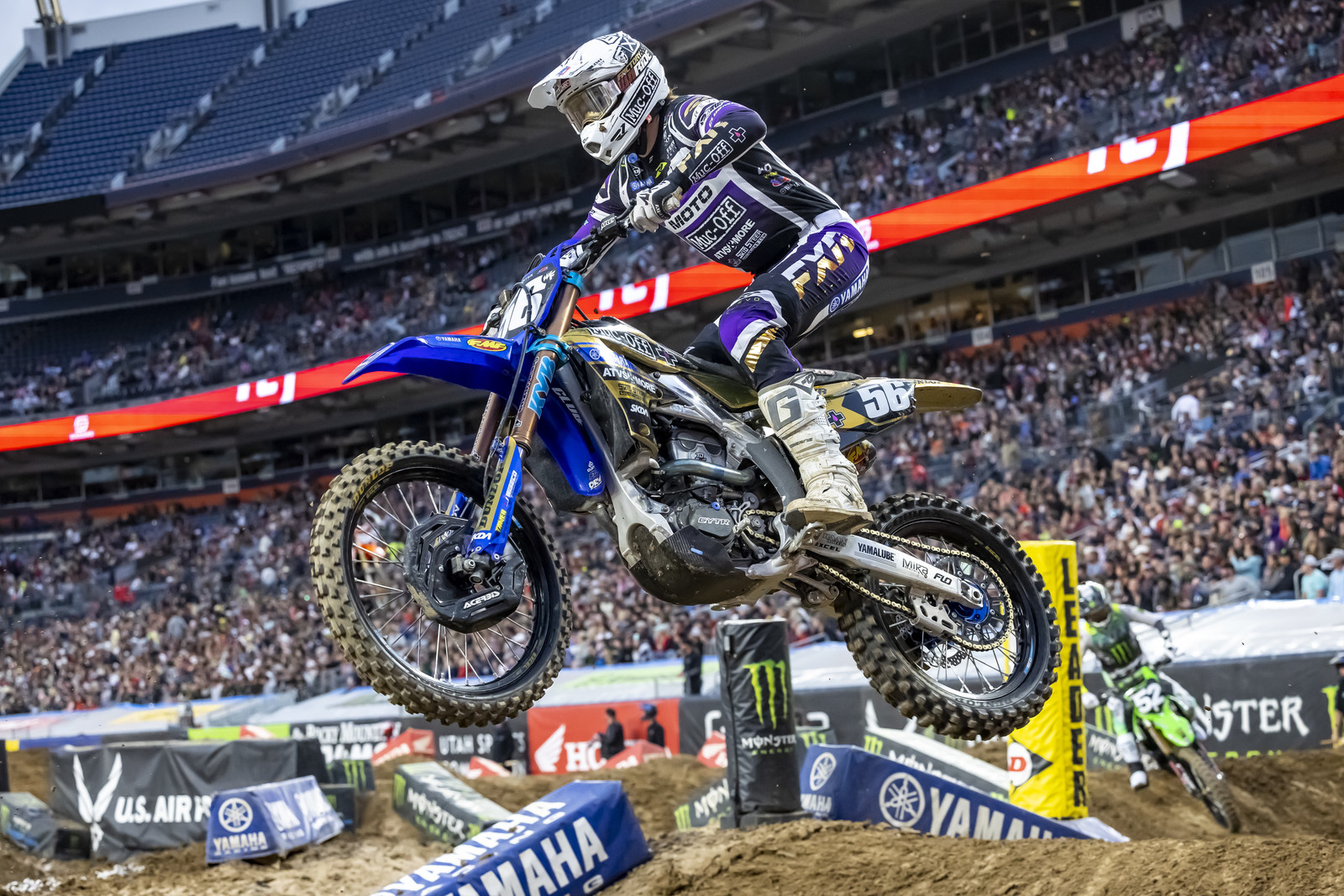
Vital MX: You told me about Mark Fineis and some others recently.
Mike: Yeah, that's a whole different thing. Mark is part of Daniel Blair's program with the Orange Brigade. We have other amateur teams that train at Club because we have ten tracks and crazy programs going on here for them with Supercross and motocross. Mark Fineis is a full-time training kid here at Club, and you can tell because he just went out and whooped up on everybody in his regional. It's the same thing with Avery Long as part of the amateur team; he also trains here, so it's not unusual for kids from other teams to train here. ClubMX as a facility is different from ClubMX as a race team. I think there's a comfort level from the other teams sending their kids here to train, and that's been advantageous for us. Our amateur team is made up of four kids right now. Patrick Murphy, who's on injured reserve at the moment, is one of our top 'A' riders. Then Trevin Nelson just came back with a few moto wins from his regional, which I'm pretty excited about that, and then Ryder Gwynn is in the 'B' class, and Alex Fedortsov is also in the 'B' class. Those two are going to be a surprise to some people when they get to Loretta's think.
Vital MX: As your role grew and your footprint became more noticeable within the team, how was the team's response, the riders in particular? Generally, the team manager is someone that has raced at a high level or has been in the industry for a long time and can see things and work with these riders on technique and whatnot. Were there any, "What do you know" comments?
Mike: Yeah, that's a good question. I don't know as much when it comes to the competition side. I know things, but not enough. Between Greg (Chidgey), Brandon, or even Phil (Nicoletti) and Jeremy (Martin), those guys know more on the competition side than a lot of people out there in the industry and maybe more than you would think they would know. The level of education and how they implement what they learn on the competition side is pretty mind-blowing. They don't need me to add to that. When it comes to everything else, whether it's traveling or the marketing side, the media side, interacting with the public, or our social media presence, those are the things that make a difference in order to be successful as a race team. Today, it's no longer about just finishing on the podium. Do I wish we finished on the podium? Yes. Are we going to finish on the podium? Yes, it's coming soon. At the same time, you have to back that up with what we call activation. You have to give something back to your sponsors. That is where they see the benefit in me. They're not coming to me for suspension settings.
Vital MX: I can imagine what it's like dealing with our boy, Phil, daily.
Mike: I know people see a different version sometimes, but if there's ever a question in the industry or a question in the business, it's staggering how many people he knows and what he knows. You just have to be prepared in the way that it's presented back to you. That's the key. Everybody has their own personality, and everybody also has something that they could offer up to the team. In our program, Enzo (Lopes) goes about things one way, and once you understand it, you can learn from him, and it's beneficial. Preston (Kilroy) goes about things one way, and once you learn it, it's unbelievable. Garrett (Marchbanks) is an unbelievable wealth of knowledge, especially on track conditions and setup and stuff like that. Garrett's amazing when it comes to those things. I don't think people realize that when you first talk to any of these guys, it's not just the rider. For us, it's not just the team. It's more of a family. Do we argue sometimes? Sure. Do we, at the end of the day, support each other? Absolutely. With Jeremy and Phil, the level of what they know takes our program to the next notch up, you know what I mean? Learning from them and being able to absorb their experiences really makes a huge difference in our program, and I think you've seen that in the last year.
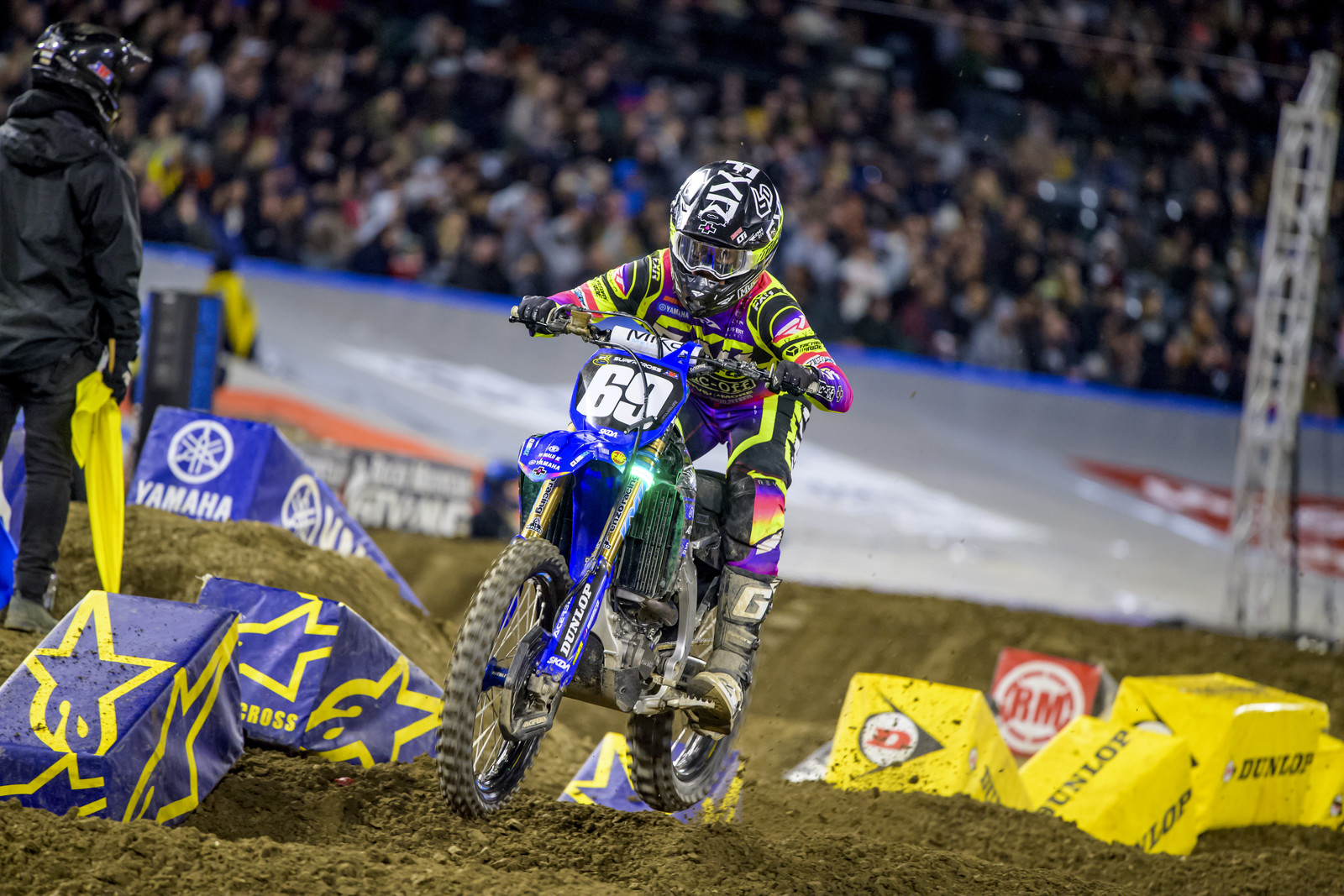
Vital MX: Some of the other things I've seen improvement-wise from the program are the Club Life videos and your pre-race and press releases that you do. You are very forward and very open. I don't know that every other team would allow themselves to be seen by the general public in that way.
Mike: When we first came up with the concept, it was not a new concept, doing a video or a vlog or whatever. Ours isn't considered a vlog. It's more of a video series. The only way to be different was to come up with a way that people could watch the sport in a way they hadn't seen before. Ours was the strategy from behind the scenes, and Rob Filebark does ours, actually. Rob videos, edits, and posts every video himself. It's truly amazing the work that this guy does. If we were more transparent because that's what we heard people wanted to see, then maybe they'd be willing to watch it, and it's actually worked pretty effectively. You're seeing things that you ordinarily wouldn't see, most likely from any other team. There are some individuals that do some stuff, but we really don't edit that much out. We just edit for time. The concept of what you're seeing isn't edited out. For anybody that hasn't watched one of our YouTube videos, just pick one at random, and you're going to see that we just tell it like it is. I have to be honest, Jamie, some of the comments we get are unbelievably flattering, and some of the comments we get are unbelievable; I don't know what adjectives to put in there, but harsh. I don't want to give you the philosophy of transparency and then you hold it against me in your comments. That's not fair, but that's what YouTube and social media generally do. It gives everybody a voice. If you ever go read through the comments, I comment. I'm the one that does the replying. So, it's a blast for me to go through and read some of the comments. I translate the Portuguese ones, so I know they're not talking crap about Enzo. It's normally really good such as, "Keep them coming because we like what you guys are doing."
I feel good about it when we're at the track because people will come up and tell us they watch them, and they only know my name because I left a comment or something like that. They'll search us out and tell us what they like about our team, and that's fun. That's the fun part.
Vital MX: Another thing that I've witnessed a couple of times is Feld and MX Sports asking you to speak at the Combine and to the Supercross Future kids.
Mike: Well, first, I was flattered that I had the opportunity to do it. My first one was at Fox Raceway last year. It was 102 degrees, and of all the kids allowed to show up from the Combine, only seven of them did, which was fine. I don't know if they all knew what was going on at the end of the day because it was the last thing on the schedule. You're familiar and friends with Aden Keefer, so you could get his view of it because he was one of the seven kids. It was seven really good kids in the amateur world that I still either talk to or text a couple of times a month. They got to witness a presentation coming from a guy like, "Who the hell are you?" Which was fun. I'm a guy from the auto parts world helping the Club team, but my topic was, 'What do teams look for other than results?' That was what they wanted me to talk about. That fits perfectly with me because I'm not the guy on the competition side, but on the marketing side. So, what do teams look for? I came up with a top ten list like David Letterman used to do. It was work ethic, marketability, compatibility, affordability, communication, testing ability, social media skills, integrity, and how you handle adversity. My last but favorite thing is, "Are your parents crazy?" I made a presentation on that, and at Fox that day, it was a bit over an hour, so it was a long time, but it was very interactive. The kids had to write things down, and they all had a talk and took them out of their comfort zone a little bit. At the end of the day, I wanted them to realize that in the paddock, 25% of the riders are factory riders, 25% are on support teams, and 50% are true privateers. If there were 24 kids in the audience, you could break it down into sixes. Six would be factory riders, six would be on a support team, and the other 12 would be privateers. I asked them this one question, "What current modern-day rider has been with the same team his entire career," you can probably name a few, but the name that bubbles up would probably be Adam Cianciarulo. He would be the anomaly. Everybody else has been on different teams all through their career. It's very unusual that one would be on the same team. I want them to understand that you have to follow these ten steps knowing that you're going to lose your job and you're going to find a new job; basically, is how I explain it to them. It was a lot of fun when Feld and the AMA looked at what I did at Fox. They invited me to come to the Moto Combines and change up the subject matter a bit because you're seeing some of the same kids each week, and the kids were very gracious, and I appreciate their time more than anything. I had a blast with it. I'm sure they liked it, as far as I can tell. At the end of the day, it's how the kids receive it. All the kids that came to these sessions were exemplary, just really good. It gives me a lot of hope for the future of the sport. I was just happy to be a part of it, a little slice of it. In the last two, we had the racers sitting away from their support people, as I call them, whether it was their parents, team managers, or girlfriends, and the conversations are different when they're not sitting next to somebody they know. People that participate from Sean Brennen with Feld, Doc Bodnar from Asterisk Medical, and Broc Glover from Dunlop. There are a lot of people they get to meet during the program that are very important to their future. They just don't know it yet. My job is to relate to them why these people are important, why listening to this presentation is essential, and what they will see next.
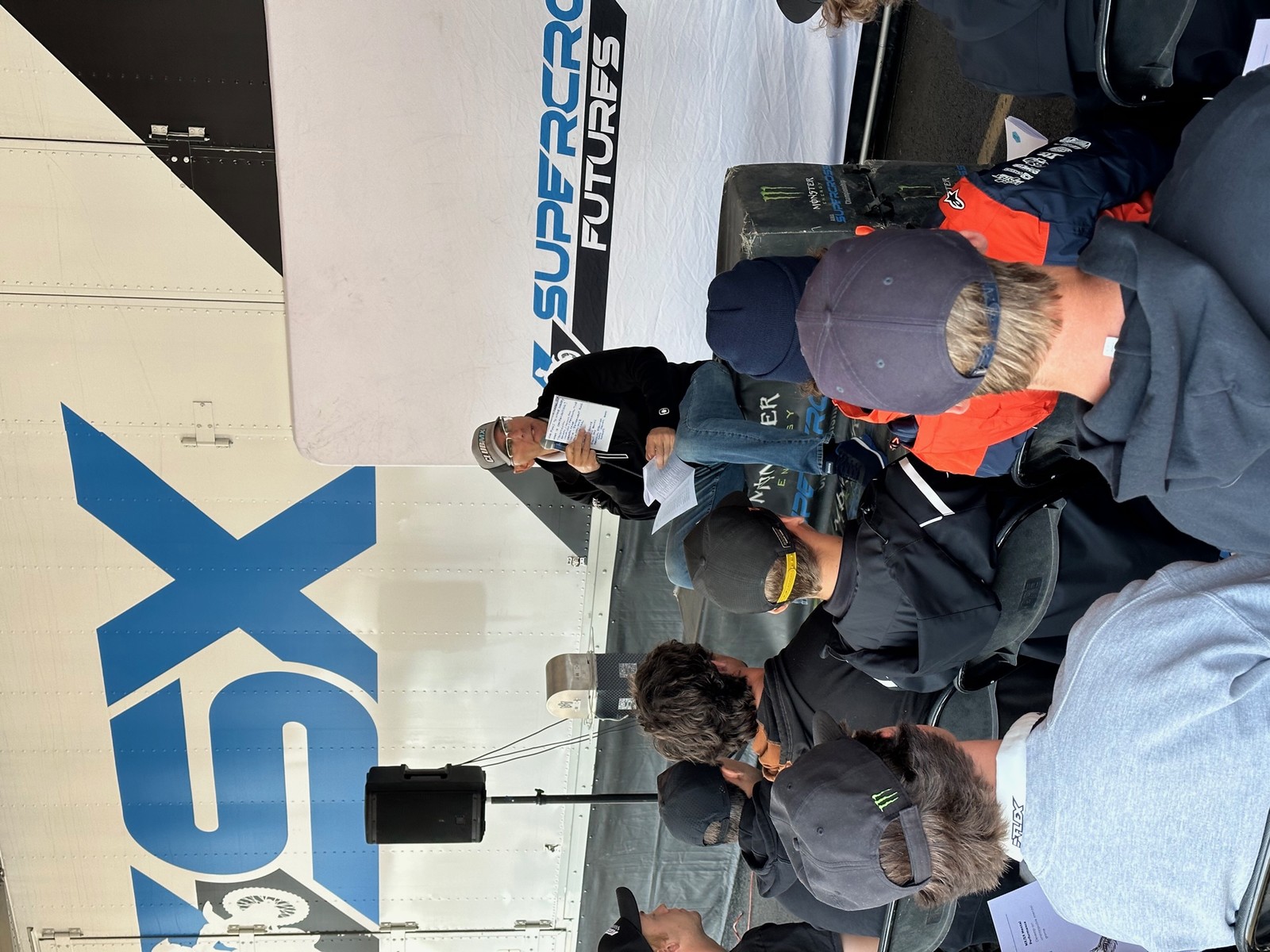
Vital MX: Let's talk about the Muc-Off/FXR/ClubMX Yamaha team. 2023 has been a very roller coaster ride of a season. Enzo had what was his best year ever. Phil Nicoletti almost won a main event, but injuries were very prevalent. Jeremy Martin, Phil Nicoletti, Garrett Marchbanks, and even Preston Kilroy, who became a fill-in rider, all got injured. How do we get past this? What's the next step?
Mike: It's a bit of a sore spot this morning because the weekend was brutal, and I look back to 2022, where we had six riders, and we went the whole year with no injuries. That was nice. I'm thinking, "Why doesn't our team have injuries? This is fantastic." Then this year rolls around, and we have four riders with five broken wrists. So, it's not ideal, to say the least, but Phil will be back soon. Garrett is back. Jeremy is now out. Preston is back. Enzo is going to do World Supercross because he's a Supercross-only guy. Honestly, Jamie, it's the toughest part of the sport for someone like me that lives in the marketing world. People's personalities are different, but the people that lean towards the competitive side sometimes are more analytical and aren't bothered so much by the emotion of the sport. On the other hand, for people like me, I get caught up in the emotion of the sport. When somebody gets hurt, they're like family, you know? So, you hate to see it. You certainly hate to live it. If I knew a way to avoid it, I would make some suggestions, but I don't. To go through this phase of people telling you, "Well, it's a brutal sport, Mike, and that's what happens," is very difficult for me. Now the point is, how do you get through it? When Garrett came back, that was the highlight for me. When Phil comes back eventually, that's a highlight for me when Preston came back, those are all high notes for me. Now it's parlaying their return into something to write about. Everything's a storyline with me, and I want good news. I'm an optimist. I want to see good things come for these guys. Even when working with the amateur team or working with the Combine kids, or working with the Futures kids, even though I have that small slice of time with them, I have this relationship now, and I want to see people succeed. That's my goal. How they get there and what team they get there on are all going to be different. When you get all the way down into the nitty gritty of the Muc-Off/FXR/ClubMX team, that's my family. This is my moto family, and I'm going to do whatever I can do to help them succeed through the marketing aspects or whatever I can do with sponsors, whatever I can do with funding, whatever I can do with any stretch of the imagination. I also learned that you can't stay at Motel 6. We are staying at Holiday Inns now. Some things you need to spend a little more money on, but those are the things that help build our program. In a long, roundabout way, I'm trying to answer your question that we just need to stick together and practice what we preach and treat other people how we want to be treated. If we continue to do those things, success will follow. That's the way that we look at it.
Vital MX: You put a lot of puzzle pieces together on paper, and it looked like it should be a very successful season. You have a lot of great talent, and Brandon and the team want to be considered as a factory-level team. In reality, you must have the results for people to see it that way. We've heard rumors that they were struggling with some setups and maybe a lack of horsepower. That's expensive, and you don't have the budget of a factory team.
Mike: I want to blur the lines between what a factory team and what our team is. We know what it takes, and it does take a lot of funding. If we could find a way to get what we need in a manageable way, that's where we're headed. Yamaha is over-the-top supportive of our program, and that's pretty cool. That means that we have one of the best platforms in the circuit. So, we're starting off with the right bike, and we're developing it from there. It doesn't take long to figure out what we need, and today, in the world of electronics, it's not always something more in your motor. It could be tweaking on the ECU a bit. Power's not the issue with us. We don't have any issues with power. Do we want more? Who doesn't? Everybody wants more, but when it comes to power, it's not really an issue for us. When it comes to suspension, working with Enzo, it's just getting the rider to like what they have in terms of what's available in our program. We're finding that our program is on par, if not better, than some of these other teams, especially in Supercross, that we beat all season long. Now it's a matter of what you want to be when you grow up. Do we want to be a factory team? Do we want to stay where we're at? Well, the fact of the matter is, if we could find the way to do what we're doing, but with more funding, we're in a pretty cool spot because now we have riders calling us where in the past that was unheard of in the last year. We haven't pushed one bike off the track, meaning our motor program is solid, and that was something that we worked on when Jeremy started with us. We wanted to make sure that that's where our budget went, and we proved that fact all season long. We don't have any motor failures, which is kind of cool, especially for a privateer team doing what we're doing. I like the freedom that we have. So, I guess it depends. If you ask Brandon, Greg, or me the question, you might get three different answers, but I want success on the track. I like doing it the way that we do it because we have this sense of freedom, and each rider on our team has the ability to set up the bike the way they want it. I've never been on a factory team, so I don't know how they do their things, but I like how we do it now. It's a matter of how you take it up the next 1% because that's where the money goes. You're always going to spend the most money in the last 1%, and that's where we're at today. If you go back and look at the Supercross season for us and when we did our military appreciation, or we did the St. Jude's race, I like being able to do those graphic schemes that are totally different, and Yamaha affords us the luxury to get off the reservation sometimes and do some of that fun stuff. Also, doing our video series and doing all the things that we do that make us unique. I don't ever want to lose that. On one side, you want to be a factory-level team. I'm sure there's more technology. I'm sure there's more budget, and I'm sure there are more resources that go into it. We can pick up on those things and keep doing what we're doing with a little more budget, and I'd like to do that too. I would venture to say for our roster, the balance of this year, and going into next year, we're going to have a very competitive team. We're going to have a very competitive bike. One thing that people won't outpace us on is finding us online and doing the things that support our sponsors and support our partners. I don't think anybody matches us there.
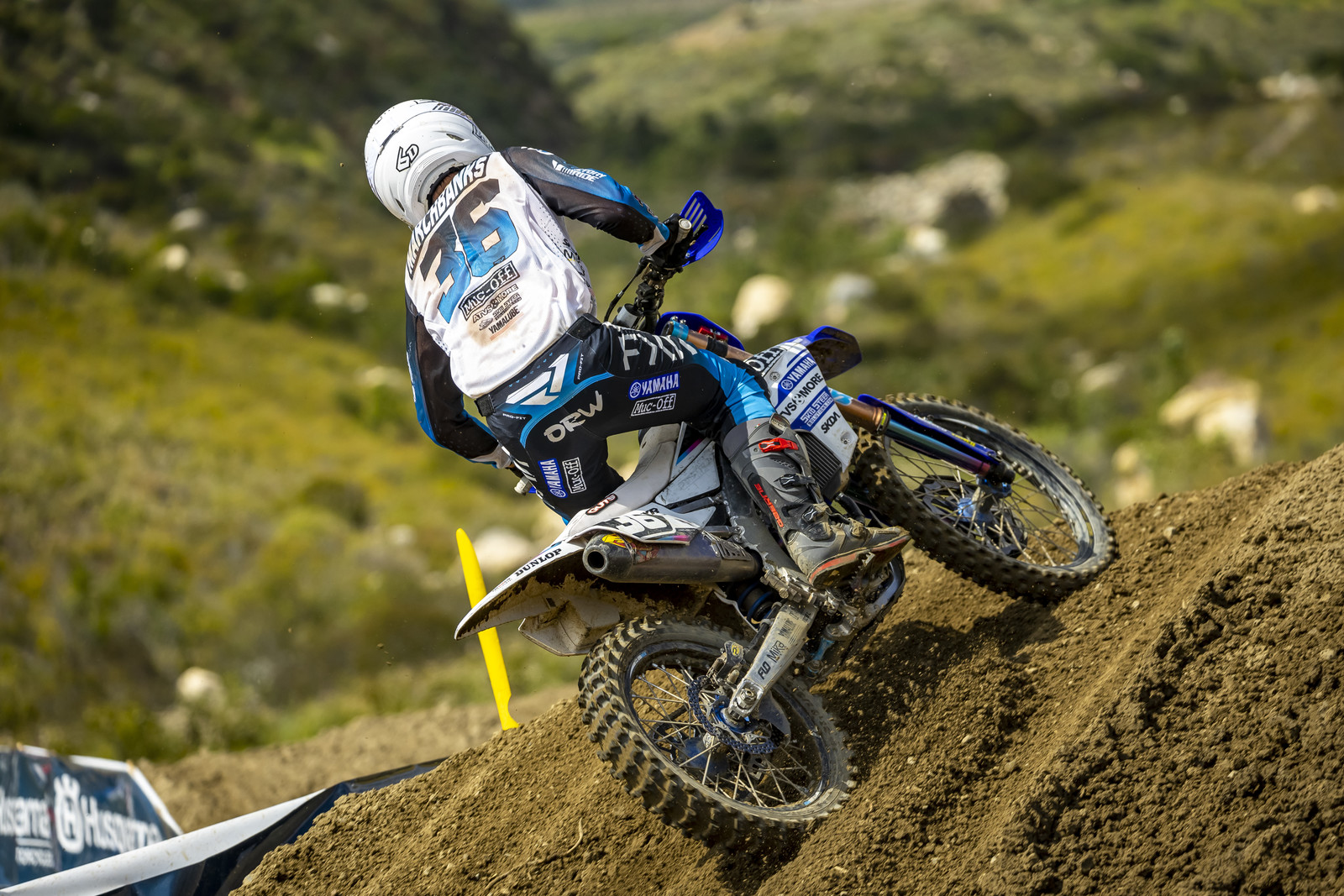
Vital MX: Was there ever any consideration of having Garrett ride the 450 outdoors like last year?
Mike: Phil will be on the 450 when he makes his return on the old number 69. He'll be ready to go in that class, and the recommendation for Garrett to be on the 450 has come from many directions. Now that you've mentioned it, I will mention that Jamie said Garrett should be on a 450, and we'll see if we can't get that done sooner than later.
Vital MX: Haha, I like it. I'll hold you to that. With the injuries to Jeremy, have you guys talked about fill-in riders? Is that even something that your sponsors need out of you?
Mike: Sponsor-wise, we want to put the most people on the track that we can and in an efficient way that makes us competitive. So, putting a guy out there to finish 19th doesn't do anybody any good. It's a little early yet to determine what path we're going to take. Phil will be back sooner than later, which immediately adds the third rider to the roster. You'd have to go deep to find someone that's going to make a splash in the 250 class this year. The 250 class is so deep that you'd be hard-pressed to give me a guy's name that could say, "Hey, I'm not on a program, and I can finish in the top ten in the 250 class." I want to talk to anybody that has an interest because I appreciate people's interest in our program. I also want to be realistic. You know me well enough that I don't tell people anything I can't do. I don't blow wind up their sail to say, "Come our way." We're very realistic about expectations and when we talk to people. What you see in our videos is how we live our lives. We're going to tell you the way it is. I do want to hear from people. I do like it when they reach out and care about our program, which has happened often this year. It's amazing the number of riders that have called. I'm not looking just to put people on a bike, just to fill a seat.
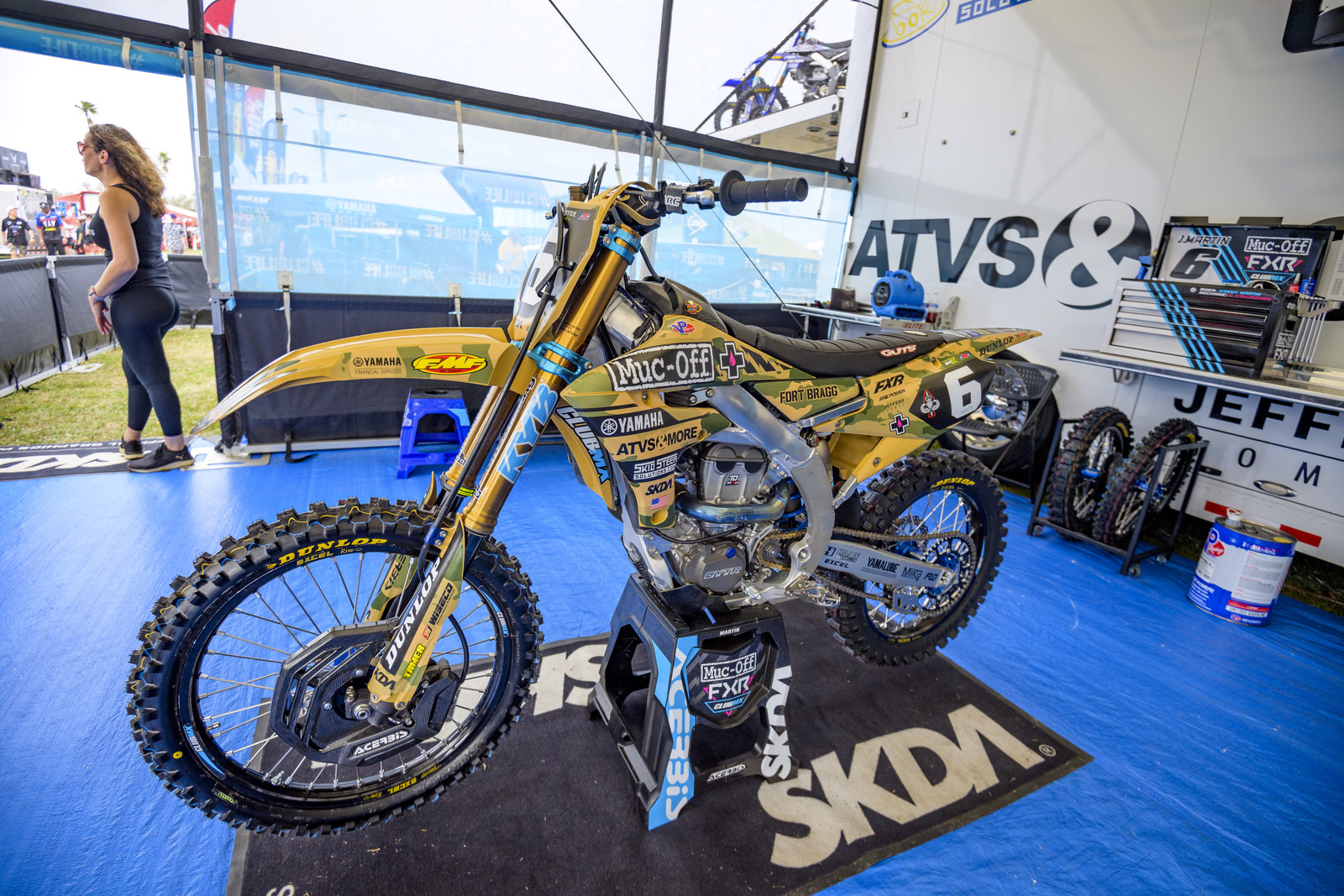
Vital MX: Jeremy Martin broke his wrist and dislocated his elbow this past weekend. I heard he had surgery, and you told me you just talked to him. Are there any updates that you can tell us? How's he feeling mentally and emotionally?
Mike: Jeremy's an unbelievable human being. He's one of the hardest workers I've ever met and one of the most fun guys to be around. To see him get hurt was painful, not only for him but for all of us. He's part of our family, and we will do whatever we need to do to support him. He's going to end up having more than one surgery. To what extent? I really don't know. It's going to take some time. It's going to be over the course of this month. He'll get done what he needs to get done, and then we'll take it one day at a time from there. Is he upset? Absolutely. He wants to see our program succeed. He wants to be a part of it. He wants to grow with us. That was one of the reasons he came to Club. It will be a period of rehab, and we'll just take it one step at a time from there.



